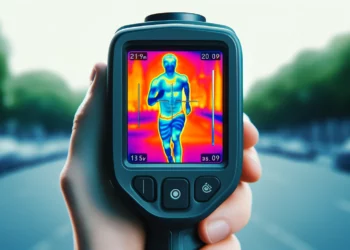Many of the things we take for granted can be challenging and difficult for blind people – smartphones especially have much less utility for them, as do smartwatches. Enter the stage Dot – the world’s first Braille smartwatch could close that gap, allowing people without sight to use and interact with smart devices.

The Braille alphabet is a tactile writing system used by the blind and the visually impaired. It is traditionally written with embossed paper, but now, it could move to the electronic area. The device uses a refreshable Braille display composed of an array of active dots that are capable of projecting four Braille characters at a time and can be customized.
“Ninety percent of blind people become blind after birth, and there’s nothing for them right now – they lose their access to information so suddenly,” said Eric Ju Yoon Kim, Dot’s co-founder and CEO, in an interview with Colin Moreshead from Tech in Asia. “Dot can be their lifeline, so they can learn Braille and access everyday information through their fingers, which is the goal of Braille literacy.”

According to the creators, the Dot has all the features you’d expect from a smartwatch, and more – if you can read Braille, that is. It includes time-keeping, an alarm, a messenger app, navigation capabilities, and Bluetooth 4.0 to wirelessly connect to other technology. It has 10 hours of active refreshing, which should give users up to 5 days of battery without recharging.
You can also change the refreshing speed for the text, so this means that the Dot can also act as an ebook reader – something which other smartphones can’t. It can even help you learn Braille or improve your proficiency.
To make things even better, the price will be quite affordable – just under $300 – which makes it a perfect gift and an affordable tool. Shipping will start in December and preorders are open.
For more information, check out their website.






